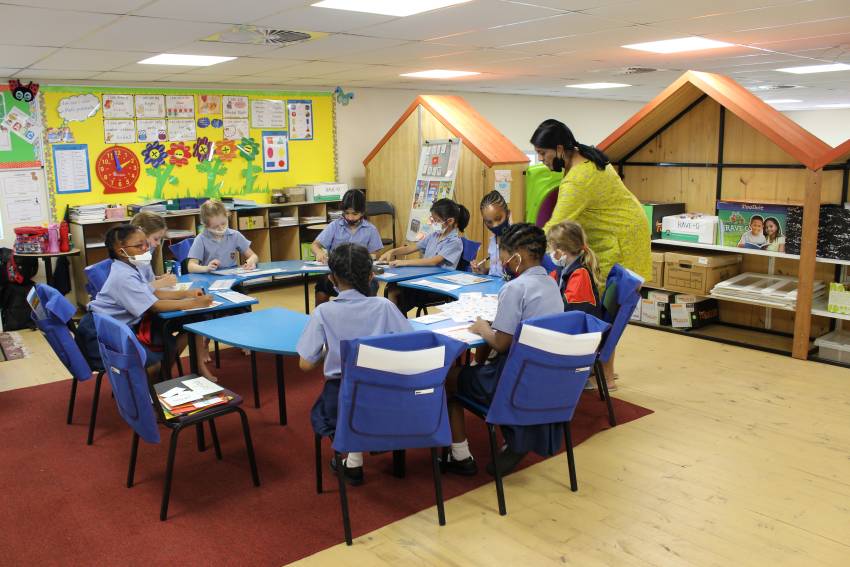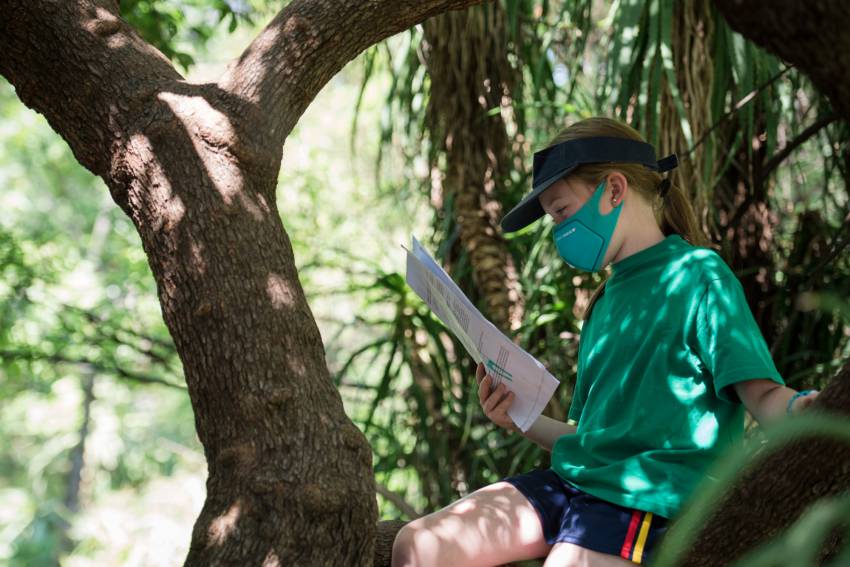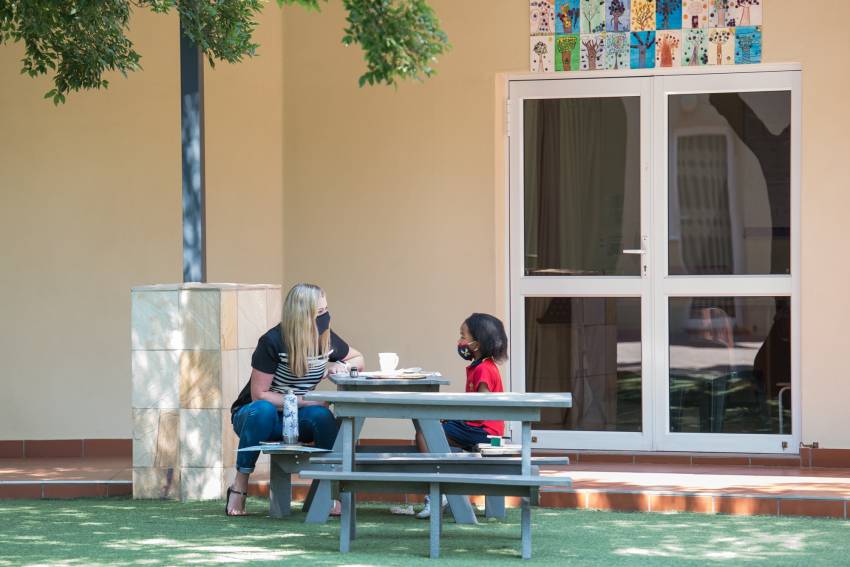St Peter's Girls Prep in support of the individual’s journey to understanding
Head of Academic support for St Peter’s Girls Prep, Carmen Whitfield is an Educational Psychologist by profession but has found her niche within the progressive school environment at St Peter’s. "Being part of someone's learning is a truly privileged position to be in. I’m there to witness both the challenges and the progress and the philosophy of inclusive learning is close to my heart."
Tracking every individual child's progress
Carmen's role involves tracking the progress of every child in the school, from Grade 0 to 7, and managing the relationship between the school and the therapists. Three therapists at the school provide inclusive practices, spending an hour during Maths and English lessons observing progress in the classrooms. A team of three independent Occupational Therapists, two Speech therapists and a Physiotherapist provide additional consulting services.
"Our collective goal is to make sure that on an academic, social and emotional level, we are not missing any areas that may need support. I liaise with each teacher as the child progresses through the grades to ensure that tactics are maintained and delivering effectively. “ she says. “Every single child is discussed at termly Therapy meetings with the teacher and/or relevant therapist and this is where their level of adjustment and progress is assessed and interventions discussed. Our interventions are well-considered and targeted and leave no room for guesswork."

Collaboration is key to the process
'Collaboration is the foundation of what I do. I am the link between the teachers, between parent and teachers and between parents, teachers and therapists. The teachers come to me daily, checking in, using me as a sounding board, making sure that our interventions are working as envisaged. We are making sure that each child is reaching progress milestones at their own level and offering an additional layer of support.'
The personalised learning approach at St Peter’s is very different to the methodologies employed at most schools. Pupils take ownership of their own learning process, with the teachers providing guidance. There is no traditional blanket curriculum; teachers focus rather on specific areas and curriculum outcomes and wherever the children are in their journey is supported by strategies to assist them in reaching their goals.

Personalised learning
'Our inclusive specialists can adjust the classroom environment or curriculum to suit the needs of the girls, if necessary. For example, if we have girls struggling with reading, we can change the font of their worksheets, give them a reading ruler, use 'wobbly cushions' or provide them with a Theraband. All of these things are easily implementable at a classroom level to assist them in reaching their personal goals,' says Whitfield.
'Even our reporting is moving to a banding system; rather than giving marks, we are assessing growth in different areas. We aim to develop a culture of self-reflection, and that is how we measure progress. Our children write assignments in their own time, not to the clock and they can also rewrite assignments if they feel they could have done better; elements like these increase the child's control over their own learning. If a child is not managing to achieve their developmental milestones, I will put a support intervention in place to assist them on their journey. Where a child requires extension instead, our inclusion therapists work with them accordingly to stretch their abilities. The whole visible learning approach revolves around understanding the reasoning behind learning the skill and then fostering the ability to apply it in different contexts. It's about expanding the children's understanding of the world around us and making learning relevant for them.'

A holistic journey
Carmen is involved right from the Admissions process. 'At admission, I can already get a good understanding of the child and what can be done to assist them in taking the steps towards mastery and helping them feel that they are acquiring the skills they need for long-term learning. Parents find our approach reassuring when they realise that we are seeing their child for who they are, as individuals, and that it is ok to have strengths and development areas. We are here to make this educative journey worthwhile for them, as well as for their child. We don't focus only about academics; we want to make sure your child is happy, that they have friends and are playing sport or learning music or expanding whatever their interests are,' she says.
'My personal philosophy is that inclusive education should be a part of life. The term "Inclusive Education" needs to become obsolete; it should become the accepted way of learning and teaching. We see your child for who they are, and will never walk away from a child without being able to offer options to assist them in reaching their potential.'